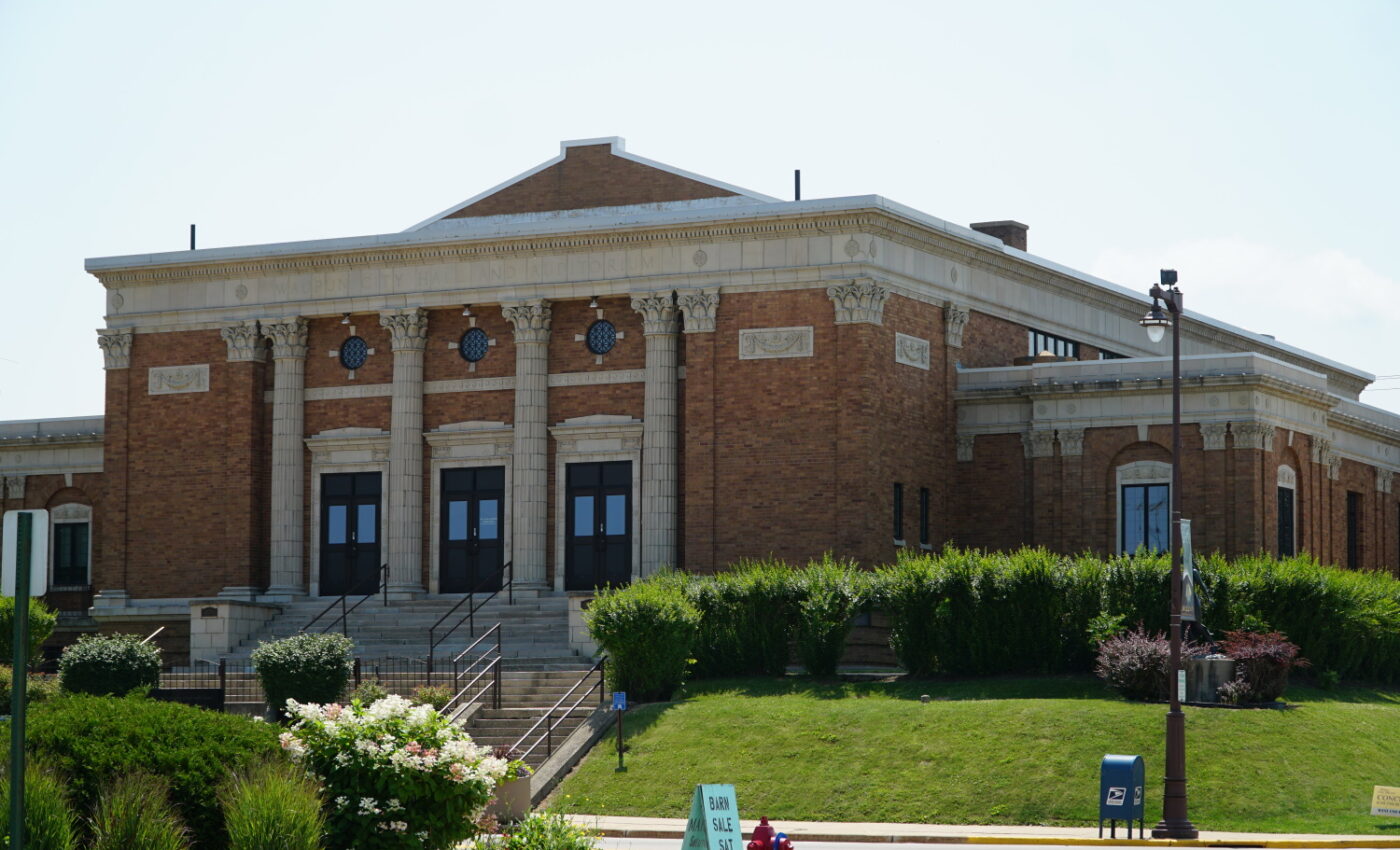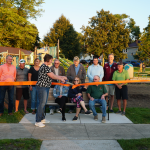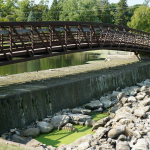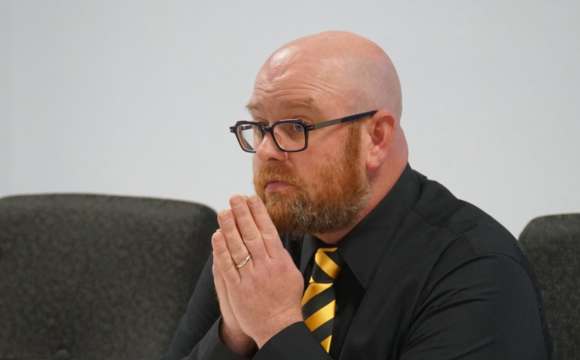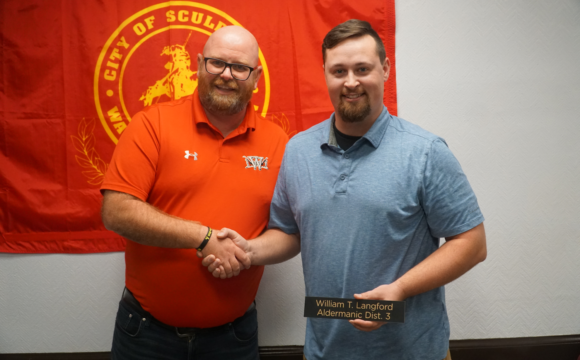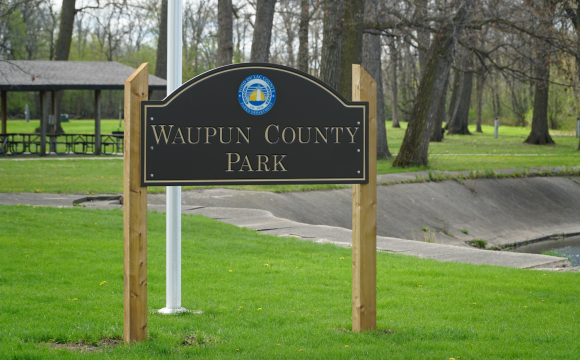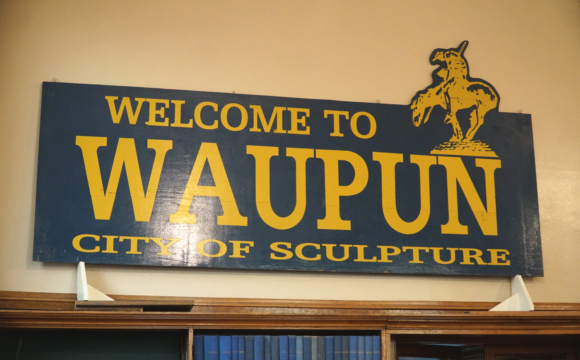WAUPUN — The Waupun City Council discussed potential courses of action regarding the construction of further stormwater retention ponds and other stormwater related projects, and whether the City requires a consultant to review financials for the topic.
The item was discussed at the Special Common Council meeting held August 26, 2025.
City Administrator Kathy Schlieve opened the item by outlining the information included in the agenda packet, which included rate comparisons with other cities along with the current Stormwater Utility Fund as part of the 2026 Budget discussed later in the meeting.
According to Schlieve, the Stormwater Utility Fund can be used for wages for stormwater related services, capital purchases, debt for construction projects related to stormwater, and land purchases for stormwater ponds, among others.
Funds from the Stormwater Utility were recently used to redevelop Harris Creek near Stobb Plumbing, as well as purchase land on Gateway Dr across from Homan Chevrolet in July, which is planned to be developed for another stormwater pond.
The primary question at hand was how to review the Stormwater Utility rates, and whether the City should hire a consultant to do a rate analysis to address the budget deficit projected in 2026.
“We don’t currently have a way to regularly review those rates,” Schlieve said. “The rates really need to be factually based and there needs to be a lot of concern about if the rates are legally defensible. It’s really high time in my opinion that we create a structure for that.”
Schlieve recommended having someone who understands the rates to look at City plans, which would save time for City staff. This would provide a financial model the City can refer to when making future decisions related to stormwater utilities.
Schlieve pointed out that the item was discussion only, mostly for a dialogue with the City Council and to answer questions about the topic.
Alderman Pete Kaczmarski asked how much a study might cost and whether it’d be budgeted for this year. Schlieve said the City does not currently have a number, and that it was less of a study and more of a financial model.
Mayor Rohn Bishop said the City is currently $65,000 short on the Stormwater Utility Fund, but pointed out that the City is still below the statutory limit for the stormwater fee and the City could increase it to make up the difference—arguing that they did not need to pay a consultant just to tell the City to raise the fee.
Alderman Kaczmarski asked if there would be any legal issues, City Attorney Dan Vande Zande said that putting together a financial model would be more defensible, if the City ever needed to justify the increased fee.
Mayor Bishop said he doesn’t want to spend tax dollars just to find out how much more tax dollars the City needs to collect. Alderman Kaczmarski added he doesn’t want to waste City staff time by having to work with a consultant for the same result.
Alderman Dan Siebers said that the City has future pond obligations and needs to reserve the fund for these projects. He went on to say that the City might not need a study, but does need some research to understand the long-term forecast on the City’s spending limit.
Alderman Jason Westphal says it does feel wasteful to spend money on studies but they need to figure out why Waupun’s rates are so high and why Waupun needs so many ponds.
Schlieve said City staff will look into what it would take to build a financial model to present to the Council at a future meeting, noting that not adjusting rates would be an irresponsible course of action.
Vande Zande said it may be helpful to get an explanation as to what benefit all the ponds would be, and that the City may want to look into why Waupun has high rates—whether that be the high bedrock, farmfield tiling, or other factors.
Mayor expressed frustrations about State and Federal regulations on stormwater ponds, with how many locations in town would not work for ponds due to factors such as placement quadrants, potential contamination, and flooding into the river.
Kaczmarski requested that the next time the City invites a State-level elected official, or anyone running for such positions, that the City ask about what they would recommend the City should do to comply with the restrictions.
Public Works Director Jeff Daane pointed out that the prison population affects the community population despite not paying any taxes. There are three watersheds the City needs to maintain due to being on the river, and EPA standards that the City needs to follow. Daane said the consultant would help identify how these factors would impact rates.
Mayor Bishop asked what the DNR does, if they can’t give an answer on where the City should put ponds.
“What are we paying them for?” he asked. “They’re telling me to build ponds, they don’t know where the land is, they don’t know how we’re going to pay for it—now I’ve got to high someone else, pay them, and have them tell me how I have to tax my citizens, to pay for ponds the DNR tells me to have, even though they don’t know where to put them.”
“At least with the Utilities example, we could build a building, but I have no where to put the ponds,” Mayor Bishop said. “Am I wrong? Whose houses are we going to buy and tear down? Stormwater pond expenditures are just hard for me to swallow.”
Kaczmarski agreed with Mayor Bishop, saying that the City should point out those efforts to those who make a difference at the state level for those issues—suggesting the City Council write an open letter to the Governor, State Representatives, and Wisconsin DNR to request their participation in the process.
Mayor Bishop said he was considering drawing a line in the sand and saying “no more” to stormwater ponds, saying it might force the DNR to acknowledge the City’s grievances.
“The reality is, we have to be careful because we have DNR permitting with our landfill and other things we don’t want to put in jeopardy,” Alderman Siebers said. “But we can’t be the only ones feeling this way. So leading municipalities is a great place to start and understand what others are feeling about it and what they’re doing about it. Because if we can put a few communities together, that’s more leverage.”
Daane noted that the City made an agreement with the State to extend the construction of stormwater ponds about five years ago, which extends through 2045. The first stormwater retention pond in Waupun was placed on the corner of Harmsen Ave and Oak Ln five years ago.
“I wonder if we could go to the State and see if there’s other cities going through this, but maybe we really are just super unique.” Mayor Bishop said. “It’s just, they tell I have to build the pond, they tell me where they have to go, they tell me I can’t raise your taxes to do it, so we created the stormwater utility—and then they criticize because it’s a backdoor tax, but how are going to pay for this? I just think a lot of politicians in Madison hide behind bureaucrats and the poor guy in Waupun’s paying the bill and we’re just getting picked on.”

